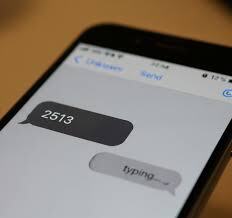Yes, the number 2513 is a legitimate and official short code used by T-Mobile specifically for sending one-time account verification codes. This message is a crucial part of T-Mobile’s security process, known as two-factor authentication (2FA), which helps protect your account from unauthorized access.
If you’ve received a text from 2513, it is not a scam, but it is a security-sensitive message. This article will explain exactly why T-Mobile uses this number and the vital steps you must take if you receive a code you weren’t expecting.

What Is the T-Mobile Number 2513 Used For?
The T-Mobile short code 2513 has one primary and very important purpose: Account Security and Identity Verification. It is an automated system designed to send you a temporary, single-use passcode when you or someone else attempts to access or make changes to your account.
You will receive a text from 2513 in the following situations:
- Logging in to your My T-Mobile account, especially from a new device or browser.
- Resetting your account password or security PIN.
- Making significant changes to your account, such as adding a new line, changing your plan, or porting out a number.
- Verifying your identity when speaking with a T-Mobile customer service representative over the phone or via chat.
The code sent from 2513 must be entered on the official T-Mobile website, app, or provided to a representative to prove you are the authorized account holder.
Is the Text from 2513 Safe and Legitimate?
Yes, a text message that originates from the 2513 short code is a legitimate and safe communication from T-Mobile. The message itself is a tool designed to protect you.
However, the context in which you receive it is critical. While the message is real, it could be a warning sign that a scammer is actively trying to breach your account.
CRITICAL: What to Do If You Received a 2513 Code You Didn’t Request
Receiving an unsolicited verification code from 2513 is a serious security alert. It means that someone else has obtained your T-Mobile password and is trying to log in as you at that very moment. The only thing stopping them is the code that was just sent to your phone.
If this happens, follow these steps immediately to protect your account:
- Do NOT share the code with anyone. Scammers will often try to get your password first, then contact you pretending to be T-Mobile support to trick you into reading the code back to them. A real T-Mobile employee will never ask you to do this.
- Immediately go to the official T-Mobile website by typing T-Mobile.com directly into your browser’s address bar. Do not click on any links in suspicious emails or text messages.
- Log in and change your T-Mobile account password to something new, strong, and unique.
- It is also highly recommended that you review and change your account’s security PIN.
- Check your account for any recent unauthorized activity or changes.
Can You Stop Texts from the 2513 Number?
No, and it is not recommended. You cannot opt out of or block messages from the 2513 short code because it is an essential security feature for your account.
These are considered “transactional” or on-demand messages, not marketing or promotional texts. Blocking this number would prevent you from being able to verify your own identity, effectively locking you out of your account if you forget your password or need to make important changes.
Frequently Asked Questions
What’s the difference between T-Mobile’s 2513 and 2512 short codes?
The 2513 short code is used almost exclusively for high-security, one-time verification codes. The 2512 short code is used for more general communications, such as billing alerts, order confirmations, network updates, and promotional offers.
Why did I get a T-Mobile 2513 text late at night?
This is a strong indicator that an unauthorized person, possibly in a different time zone, is attempting to access your account while you might be asleep. Treat this as an urgent warning and change your password immediately.
Can I text 2513 for help?
No. The 2513 number is a one-way, automated system for sending out security codes. It is not monitored by customer service agents and will not respond to texts. For help, you should call 611 from your T-Mobile phone.
Does the T-Mobile 2513 code expire?
Yes. For your security, these codes are time-sensitive and will typically expire within 5 to 10 minutes after being sent.
Conclusion
To summarize, the T-Mobile number 2513 is a legitimate and vital tool used for your account’s security. If you initiated an action like logging in or resetting your password, the code is safe to use on the official T-Mobile website or app. However, if you receive a code unexpectedly, treat it as a critical security alert: never share the code, and immediately change your T-Mobile password to protect your account from a takeover.


